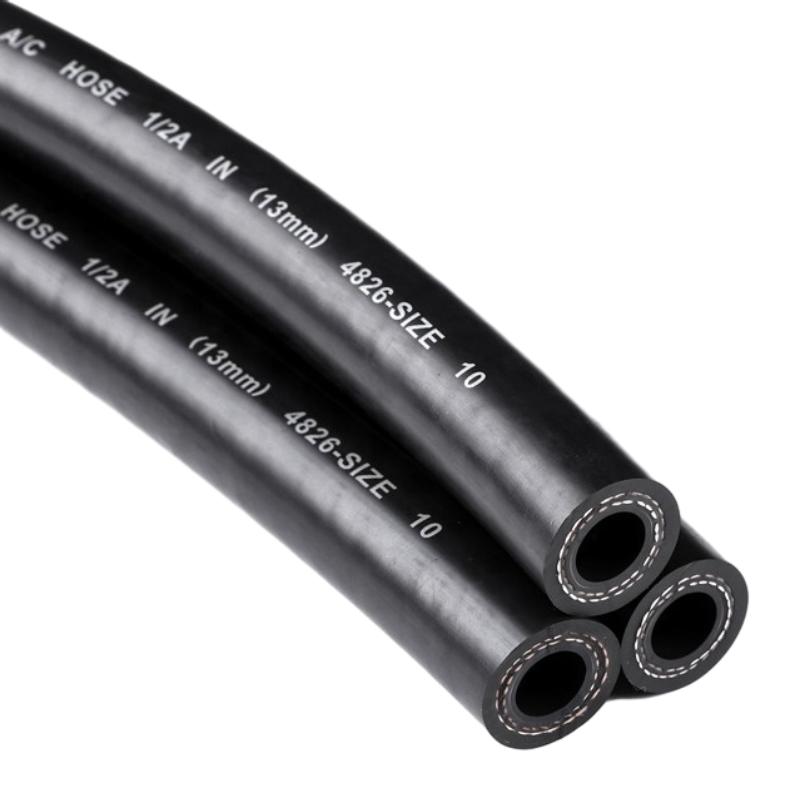Exploring the Importance of Fuel Tubes in Automotive Performance and Efficiency Systems
Lie . 25, 2024 05:04 Back to list
Exploring the Importance of Fuel Tubes in Automotive Performance and Efficiency Systems
Understanding Fuel Tubes Essential Components in Automotive and Aerospace Engineering
Fuel tubes are critical components in various industries, particularly in automotive and aerospace engineering. These tubes are designed to transport fuel from one part of the system to another, ensuring that engines operate efficiently and safely. The importance of fuel tubes cannot be overstated, as they play a significant role in the overall performance and reliability of vehicles and aircraft.
What are Fuel Tubes?
Fuel tubes are specialized pipes or conduits made to carry fuel, which can be gasoline, diesel, or other types of liquid propulsion. These tubes are typically made from materials that are resistant to corrosion and can withstand high pressures, such as stainless steel, aluminum, or reinforced plastics. The design and material choice depend on the specific requirements of the application, including temperature ranges, pressure conditions, and the type of fuel being used.
Applications of Fuel Tubes
In the automotive industry, fuel tubes are essential for the operation of internal combustion engines. They transport fuel from the tank to the fuel injectors or carburetors, where the fuel mixes with air for combustion. The design of these tubes is crucial; they must ensure a steady flow of fuel while minimizing chances of leaks or blockages. This is vital for maintaining the efficiency of the engine and reducing emissions.
Similarly, in the aerospace sector, fuel tubes are used to direct fuel to jet engines. The stakes are higher in this industry due to the safety concerns and operating conditions of aircraft. Fuel systems in airplanes are designed to operate under extreme pressures and temperatures, requiring precise engineering. Any malfunction in fuel tubes can lead to catastrophic failures, which is why rigorous testing and compliance with safety regulations are essential.
Key Considerations in Fuel Tube Design
fuel tube

When designing fuel tubes, several factors must be taken into account. Firstly, the diameter and length of the tubes can affect the flow rate of the fuel. Engineers must calculate the optimal dimensions to prevent a drop in pressure and ensure efficient fuel delivery.
Secondly, compatibility with the type of fuel is crucial. Different fuels can have varying chemical properties, and materials used for the fuel tubes must be resistant to degradation in the presence of specific fuels. For instance, fuels containing ethanol can corrode certain metals, necessitating the use of special alloys or coatings in tube fabrication.
Moreover, fuel tubes must be designed to withstand vibrations and shocks, especially in vehicles and aircraft that are in constant motion. Manufacturing processes also play a significant role in the durability of fuel tubes; techniques such as welding, bending, and surface treatment must be executed meticulously to ensure structural integrity.
Innovation and Future Trends
The automotive and aerospace industries are continuously evolving, leading to advancements in fuel tube technologies. Innovations such as lightweight composite materials are being explored to reduce overall weight, thereby improving fuel efficiency. Additionally, the increased adoption of alternative fuels has prompted research into new materials that can effectively handle biofuels or hydrogen-based fuels.
Furthermore, modern engineering practices emphasize the importance of sustainability. The development of recyclable materials for fuel tubes is a growing area of interest, aligning with the global push for environmentally friendly solutions.
Conclusion
Fuel tubes are indispensable components in both automotive and aerospace applications. Their design, material selection, and manufacturing processes are crucial for ensuring safety, efficiency, and reliability in fuel delivery systems. As industries continue to innovate and pursue sustainable practices, the role of fuel tubes will remain pivotal in shaping the future of transportation and propulsion technologies. Whether in a car speeding down the highway or an airplane soaring through the sky, fuel tubes are the unsung heroes that keep engines running smoothly.
Latest news
-
Premium 4890 AC Hose | Durable & Perfect Fit Replacement
NewsAug.21,2025
-
High-Quality AC Hose: Compressor to Evaporator for Car
NewsAug.19,2025
-
Glass Storage Jar with Acacia Vacuum Vented Cover - HEBEI KEMO|Thermal Resistance, Food-Grade Safety, Eco-Friendly
NewsAug.18,2025
-
Glass Storage Jar with Acacia Lid - Hebei Kemao | Heat-Resistant, Eco-Friendly
NewsAug.18,2025
-
Glass Storage Jar with Acacia Vacuum Vented Cover - HEBEI KEMO|Thermal Resistance,Eco-Friendly Storage
NewsAug.18,2025
-
Premium 4890 AC Hose | Durable AC System Replacement
NewsAug.18,2025
